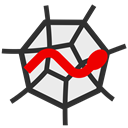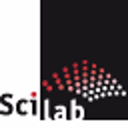Top Scilab Alternatives for Numerical Computation and Scientific Applications
Scilab is a powerful open-source scientific software package widely used for numerical computations, engineering, and scientific applications. It offers a robust open computing environment with hundreds of mathematical functions, sophisticated data structures, and a high-level programming language. However, for various reasons such as specific feature requirements, platform preferences, or integration needs, users often seek viable Scilab alternatives. This article explores some of the best alternatives available, catering to a range of computational and programming demands.
Best Scilab Alternatives
Whether you're looking for open-source flexibility, commercial support, or specialized functionalities, there's a Scilab alternative out there for you. Let's dive into some of the top contenders that can meet your numerical computation and scientific programming needs.

GNU Octave
GNU Octave is a free and open-source computer program primarily for numerical computations, known for its high compatibility with MATLAB. It's an excellent Scilab alternative for users seeking a powerful, free environment across various platforms including Mac, Windows, Linux, and BSD. Key features include ANOVA test capabilities, making it suitable for statistical analysis.

MATLAB
MATLAB is an enterprise-class commercial computing environment and programming language renowned for numerical computation. As a robust Scilab alternative, it offers extensive functionalities like Simulink, batch plotting, and an embedded debugger. It's available on a wide array of platforms including Mac, Windows, Linux, Web, Android, iPhone, and iPad, making it highly versatile for professional and educational use.

R (programming language)
R is a free and open-source software environment specifically designed for statistical computing and graphics. It's a fantastic Scilab alternative, especially for data scientists and statisticians, offering features like automatic data loading and data mining. R is a GNU project available on Mac, Windows, Linux, and BSD platforms.

Jupyter
Jupyter is an open-source, interactive platform for data science and scientific computing supporting over 40 programming languages. As a versatile Scilab alternative, it offers browser-based interaction, interactive visualization, literate programming, and server-side capabilities. It's available on Mac, Windows, Linux, Web, and Cloudron.

Sage
Sage is a free and open-source mathematics software system licensed under the GPL. This Python-based Scilab alternative combines the power of numerous existing open-source packages into a unified environment, making it excellent for symbolic computation. It runs on Mac, Windows, Linux, and Web platforms.

Mathematica
Mathematica is a definitive commercial technical computing system covering machine learning, neural networks, data science, and visualizations. It's a powerful Scilab alternative for those needing advanced computational features including symbolic computation, calculus solving, equation solving, and sophisticated graphing capabilities. Mathematica is available on Mac, Windows, Linux, and Web.

SciPy & Numpy
SciPy and NumPy are open-source Python libraries essential for mathematics, science, and engineering. While not standalone applications like Scilab, they form a fundamental part of a Python-based scientific computing environment. They are free and open-source, available on Mac, Windows, and Linux, offering a highly flexible and extensible Scilab alternative for those comfortable with Python programming.

Spyder
Spyder (Scientific Python Development Environment) is a free and open-source Python development environment that provides MATLAB-like features. It serves as an excellent Scilab alternative for Python developers, offering a simple and lightweight software solution. It's available on Mac, Windows, and Linux, and is specifically designed for Python and Python IDE functionalities.

Julia
Julia is a high-level, high-performance dynamic programming language optimized for technical computing. It's a free and open-source Scilab alternative with syntax familiar to users of other technical computing languages. Julia boasts features like automatic JIT compilation, parallel computing, and a powerful compiler, making it ideal for demanding numerical tasks on Mac, Windows, and Linux.

Xcos
Xcos is a graphical editor for designing hybrid dynamical systems models. While technically part of the Scilab ecosystem, it's worth mentioning as a focused simulation tool within that environment. If your Scilab usage heavily revolves around graphical modeling and simulation, Xcos offers dedicated features for this purpose. It is free and open-source, available on Mac, Windows, and Linux.
The world of numerical computation and scientific programming is rich with diverse tools. Whether you prioritize open-source flexibility, commercial support, specific programming languages, or unique features like symbolic computation or statistical analysis, there's a compelling Scilab alternative for your needs. We encourage you to explore these options and choose the one that best aligns with your workflow and project requirements.